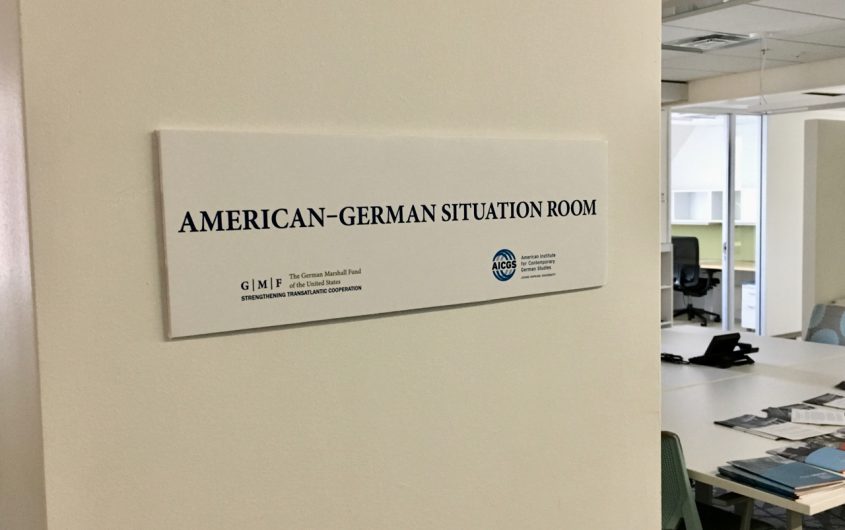AGI News
Frank Bohn, AGSR Fellow

AICGS

Frank Bohn
Radboud University Nijmegen
Dr. Frank Bohn is an American-German Situation Room Fellow in October-November 2018.
Frank Bohn, Radboud University Nijmegen, previously worked at Essex University (UK) and University College Dublin (Ireland). His academic background comprises a Licence (BA) from Toulouse University, a Diplom (MA) from Bonn University , a Princeton University Fellowship, and a PhD from Heidelberg University. Frank's interest is in macroeconomics and political economy. He has papers in public finance, monetary economics, and international economics incorporating political instability, corruption, rent-seeking, and time-inconsistency. More recently, his work has focused on political budget (and propaganda) cycles and political forecast cycles. His 2018 publications (all forthcoming) are in the European Journal of Political Economy, PlosOne, the Review of International Economics, and Economics and Politics.
AGI is pleased to welcome Frank Bohn as an AGI/GMF Fellow with the American-German Situation Room in Washington, DC, in October-November 2018.
Frank Bohn, Radboud University Nijmegen, previously worked at Essex University (UK) and University College Dublin (Ireland). His academic background comprises a Licence (BA) from Toulouse University, a Diplom (MA) from Bonn University , a Princeton University Fellowship, and a PhD from Heidelberg University. Frank’s interest is in macroeconomics and political economy. He has papers in public finance, monetary economics, and international economics incorporating political instability, corruption, rent-seeking, and time-inconsistency. More recently, his work has focused on political budget (and propaganda) cycles and political forecast cycles. His 2018 publications (all forthcoming) are in the European Journal of Political Economy, PlosOne, the Review of International Economics, and Economics and Politics.
While at the German-American Situation Room in Washington, DC, Dr. Bohn will continue his work on political budget cycles, including a presentation at the World Bank. He will also look at elections, ethnicities, and in-group loyalty, specifically the motivation for loyalty in ethnic groups. Li and Pique (2018) emphasize non-instrumental, ethical or expressive, motives for voting. De Vries (2017) argues that expressiveness may be particularly relevant for explaining in-group loyalty in parties, even if their leaders are corrupt. Can such motives also be relevant for ethnic groups? Are ethnic leaders supported because of “motivated reasoning” (ethnic voters discount negative information about the ethnic leader in order to avoid a negative self-image)?








